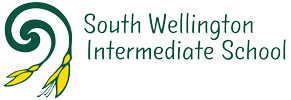What is a Student-led Conference?
Student-Led Conferences are a meeting run by each student for their whānau, entirely focused on their recent learning at school.
During the session, students present learning in different curriculum areas, discussing the process of learning and sharing progress they have made.
How does a Student-led Conference work?
The session can last up to 30 minutes. You do not have to stay this long if your child has finished sharing their learning.
Several students may have their session at the same time in your child’s classroom.
Each student will have a basic agenda that they will follow.
You will be involved in a variety of activities during the time:
- looking at samples of learning,
- talking about goals and what your child, you and the teachers might do to support these goals,
- looking at work around the classroom etc.
At some point during your session, your child’s homeroom teacher will spend some time with you. This time will allow the teacher to expand on the information your child has shared or for you to clarify something if necessary.
The homeroom teacher will be checking that you have read and understood the information contained in your child’s report. Feel free to ask them questions about the report – this is why it is important to read it beforehand.
Important things to remember
- Your child must attend.
- As part of their regular learning, all students have been putting considerable time and energy into preparing for this. If you cannot attend, please arrange for another significant adult in your child’s life to come to the session.
- Your child will lead their showcase – not you, not the teacher!
- The showcase is about learning – not behaviour or social issues. (If you or the teachers have concerns here, discussions should already have been held or you can make a time to talk with your child’s homeroom teacher at any time during the year).
Can siblings attend?
Please be mindful that distractions make it difficult for your child and others in the room to stay focused as they share their learning.
We ask that parents turn off cellphones and that preschoolers do not attend.
A room for child-minding will be made available if you are unable to make your own arrangements.
Please also note that we may be filming some of the sessions so that teachers can use this to inform their learning and teaching.
What will I need to do to support my child?
Before the conference:
- Book a time and put it in your diary
- Each student will run only one session so all family members who wish to attend will need to be aware of the booking time.
- Check the prompts and important things to remember list (below).
On the day:
- Come with your child.
- Listen – your child will do most of the talking. Your child will share examples of their learning, discuss with you progress they have made, and share their current learning goals.
Your job:
- Prompt to support your child if necessary.
- Enjoy the opportunity to see your child in their key learning environment.
- Celebrate your child’s progress to date.
After the session:
- Continue to celebrate your child’s successes and support their learning goals.
Guide for Families
My Student-led Conference will include:
- Me sharing examples of my recent learning e.g. in my books.
- Me showing you around my classroom and sharing learning from the walls and around the room.
- A discussion with my homeroom teacher about my learning, progress and next steps.
- An opportunity for us to talk about my next steps and goals and how you can support me at home.
- My homeroom teacher will greet us upon arrival.
- We can find a spot in my classroom and get started straight away.
- I will start us off by sharing some examples of learning I have taken time to prepare before our session.
- I will also share my new learning goals with you.
- You can ask me questions about my learning and use the prompts below to support me as I discuss my learning with you.
- My teacher will check in with us at some stage and answer any questions you may have.
- They may share how you can help me at home.
- My teacher will check that you have understood all information that was shared in my progress summary (report).
Here are some questions you could ask me as we share and discuss my learning together:
- What are you most proud of? Why?
- What were you learning to do in this piece of work?
- What were the steps you went through to learn this?
- What helped you to learn this?
- What do you need to learn next?
- How will you work on your learning goals?
- Which area of learning do you find easiest?
- Which area of learning do you find trickiest?
- What do you do when your learning gets tricky/ challenging?
- Where have you made the most progress?
- What has helped you to do this?
- What can we do at home to support your learning goals?
What is the research about Student-led Conference?
Professor John Hattie (formerly University of Auckland) recently published a revised list of the most effective influences on student achievement which identifies student self-reporting as the most significant indicator linked to raised student achievement. Two other international researchers, Black & Wiliam, further comment:
“the process of students reflecting on their learning, through effective questioning that promotes the articulation of student thinking, is integral to classroom assessment practices that enhance student learning”.
If the focus is to be kept on learning, and the ownership of the learning with the child, then the best person to talk about the learning is the learner. Not only is the student the best person to tell their parents what they have learnt, but if we believe that students build their knowledge by communicating what they know, then providing an opportunity for the students to tell their family what they know can significantly assist with that learning.’ Absolum,(2006).
Research also shows parental involvement in schools and classrooms has a positive impact on children’s learning (Bastiani;Epstein).
In helping to strengthen the partnership between the learner, the teachers and the parents, we believe student-led conferences promote some ways learning can also be supported at home.

